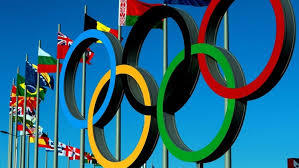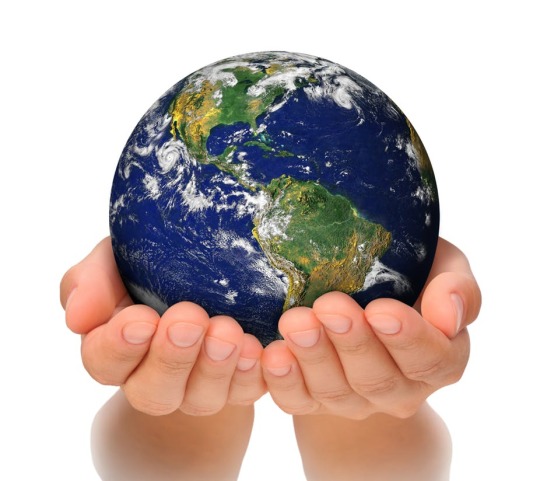Text
Pop Culture; Raising Awareness or Status?

It's become quite clear that in this day and age, pop culture has pretty much taken over the world. Almost everything we do is a part of this cosmopolitan view of pop culture. It's been said that pop culture has brought the world together creating "shared experiences." Even though this may be true, it doesn't always necessarily have the right intentions.
Pop culture has done many positive things to bring us together with things such as music, sports, and television. However, not all of these have the right intentions behind them. Pop culture, in general, is used as a vehicle for global citizenship initiatives. There are so many events that are organized to raise awareness and money for different causes, many of which you've probably heard of. It's the events like WE Day and Live 8 that make you ask yourself what the real goal is. We have to ask ourselves if we are just using these events as a way to make us feel better about partying, or are we genuinely helping out a cause? This is known as narcissistic sentimentalism. Now, I'm not saying this is always the case, even the events that have all the right intentions, that might be all it is. What's important is what happens afterward are you just going back to your daily life? Or are you going to continue to help the cause you supported?
It's impossible to attend one event and then start calling yourself a global citizen. You have to commit and make it about the cause, not yourself. At the end of the day, yes, pop culture is bringing us all together as a global community. We attend an event for a good cause, help raise some money and awareness, but for most people, that's the end of that. The commitment to the cause ends when the night ends.
Related Articles:
http://www.globalization101.org/pop-culture/
0 notes
Text
Olympics and Globalization

The world-renown Olympic games has created its own global culture. Not only does it attract the world's top athletes, but it also brings together millions of people cheering for their home countries. However, this event is more than just a competition for sports. I'm sure the majority of the world is familiar with the Olympic Symbol, the 5 coloured rings linked together where each ring represents one of the 5 continents. The linkage between them symbolizes this unity of athletes coming together from around the world to compete against each other. The game itself represents a unified force, whereas the Olympics reflect the interconnection between cultures and sports.
The event is made accessible to everyone around the world to watch. In 2012, over 4.8 billion people were watching the games on their television, which is over half of the Earth's total population. Not only are the Olympics made accessible for everyone to watch, but also for everyone to compete. In 1960, after the Second World War, a special Olympics emerged to honour those people who had received permanent disabilities. In 2016, at the summer Olympics held in Rio de Janeiro, they introduced the very first all-refugee team. Both of these events proved that no matter where you're from or what your story is, you can succeed.
As I said before, the Olympics has essentially created its own global culture, where there are shared experiences, norms, and symbols that unite people at a global level. Everyone who competes in the games can be considered a global citizen, where each one of them has made an impact on the world. The goal of globalization is to bring our planet together as a whole and make it more equal, fair, and sustainable. In my opinion, the Olympics and its participants are perfect examples of what globalization is and it also shows the great contributions they're making for globalization itself.
Related Articles: https://www.aperianglobal.com/social-cultural-impacts-hosting-olympic-games/
https://www.globalcitizen.org/en/content/how-to-watch-olympics-guide-global-citizen/
0 notes
Text
Citizens of the World

Cosmopolitanism is a term that dates all the way back to the Ancient Greek times. It derives from the word kosmopolitēs, meaning “citizen of the world.” Cosmopolitanism refers to the idea that all human beings belong to a single community, based on a shared morality.
Now today cosmopolitanism has shifted into global citizenship, that we have a moral obligation to fellow citizens all over the world. The identity gives meaning to one's life and continues to help shape who they are. As human beings that live on earth, we share a responsibility for what is happening in the world. A great example of this is Global warming, and how the conjoined forces and actions of global citizens are having major impacts on such an issue. Over the past several years, global warming has worsened substantially. For those who aren't very educated on the topic, you may be wondering what's being done to improve the problem at hand. Global citizens around the world are joining forces to raise awareness and are taking the initiative to do what they can to protect our planet.
Many people choose to ignore what is currently happening in the world. However, it's those who are not and decide to take action that become global citizens. These are the people that are aware of the world and have a general sense of their role in it. It requires a change in our moral perspective where we care about others we have never met in countries we have never been to. Global citizens involve focusing on what we have in common rather than our differences, so they contribute to their communities, both local and global. Do you want to start your journey to becoming a global citizen? Think globally, act locally.
Related Articles
- https://www.opendemocracy.net/en/opendemocracyuk/what-does-it-mean-to-be-global-citizen/
- https://www.gvicanada.ca/blog/7-steps-to-become-a-global-citizen
0 notes
Text
Effects of Globalization on Apple Inc.

According to Apple, there are roughly 1.4 billion active Apple products around the globe, (Lee, 2019). I wouldn't be surprised if most of the people reading this blog post right now are contributors to this number. If you are an Apple product owner, then you can thank globalization for that luxury. Not one product sold at this organization is made in Canada, meaning without globalization we simply would not be able to own the same Apple products that we know today.
For those who aren’t familiar with the term globalization, it refers to the worldwide interdependence of resource flows, product markets, and business competition that characterize the new economy. Apple itself is an American company, however their manufacturers are located in more than one place around the world, therefore they are a contributor to globalization. Apple is only responsible for the design, the physical components are collected from several different countries across the globe. For example, the battery comes from Samsung which is based in South Korea, the camera is from Sony which is based in Japan, the accelerometer is from Bosch Sensortech which is based in Germany, (Costello, 2019), and so on. If resources were not capable of being outsourced, majority of the companies we shop from would not be the same, or may not even exist. When you really think about it, how many companies can you name that are 100% made in Canada? Not many. Now, it’s not impossible for businesses to exist without global trade but, it would definitely change companies as we know them. Since the laws in North America are very different than those of Asia or Africa, factors such as pricing and manufacturing speed are guaranteed to fluctuate. As of right now, Apple relies on interdependence to create their ideal products.
The photo above features a few of the Apple products that I own and use on a daily basis. My IPhone is used to communicate with others and for social media, my MacBook is used for school and research, and my AirPods are used to listen to music. Without these products, life would be very different. Yes, times were not always as they are now but, globalization has allowed the world to develop and change for the better.
To read more on Apple and how globalization has effected their company I suggest taking at the article listed below.
The New York Time’s https://www.nytimes.com/2011/07/01/world/asia/01iht-letter01.html?_r=0
1 note
·
View note